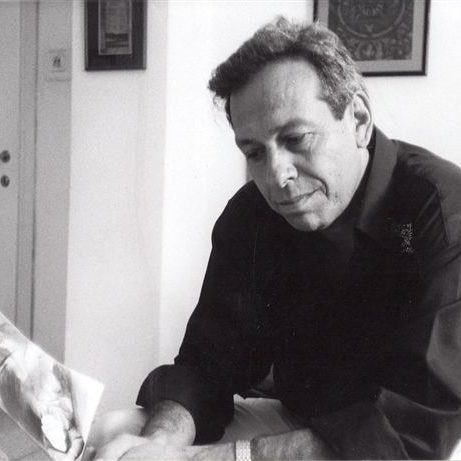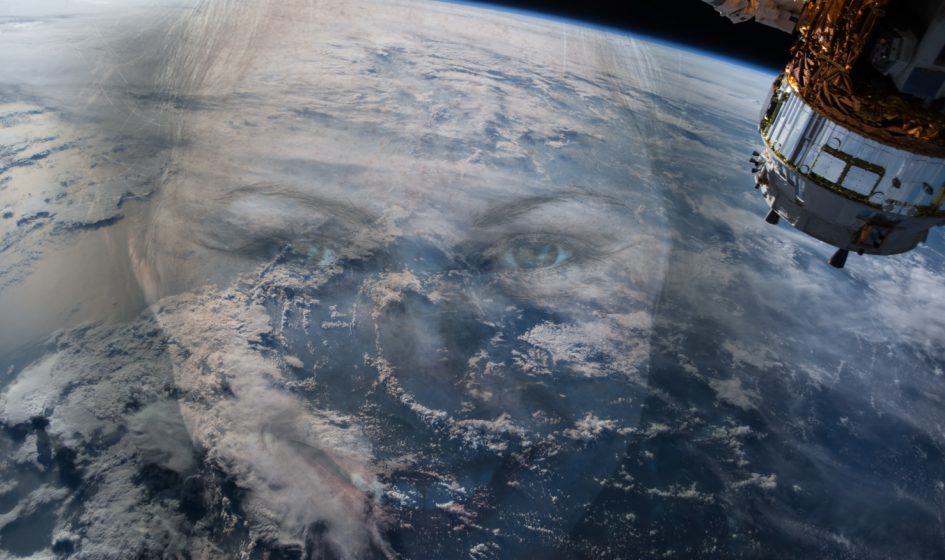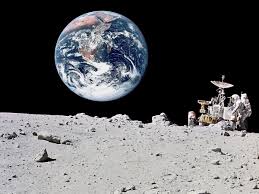To Observe Oneself like an Astronaut Looking at the World.
published on October,27,2016
by Avi Baumann..
The fine documentary film, “Planetary,” contains interviews with astronauts who have briefly traveled beyond the atmosphere and seen the earth from a distance for a while.
They report undergoing a a fascinating and significant change in their consciousness, their vision of the world, their feelings, and their sense of belonging to the world and to the universe. Seeing the earth from an enormous distance was a sublime experience, which gave them a different perspective and a new view of the universe.
Their view from beyond the atmosphere was not only significant for them personally; their amazing journey into space also affected the perception of many other people. It was evident that the entire world underwent a significant change because of the distant, unbelievable perspective on the earth that was afforded to humanity. People looked at the pictures, were captivated, acquired knowledge – and everyone's vision of the world changed.
Clearly the world was seeing itself from a distance and discovering a new viewpoint ;through the astronaut's eyes, humanity found an altered sense of self-dimension in the vast cosmos.
The Human Being's Inner Self-Observation
The way in which the astronauts shifted humanity's contemplation of the earth, may be compared to a person learning to observe herself from an external perspective, changing her view of herself, — in its varied unconscious parts, often through the insight of another .
People have always had deep curiosity, which impelled them to investigate, to observe, and to know themselves. I do not refer to observation of the outer reflection, something any living creature can do, but inner contemplation, an act that requires intelligence, thought, sensitivity, and feeling.
Why is this ability so important to everyone, and what are the psychological tools, or “the orbiting ?satellite, if you will, needed for such an observation
Since humanity acquired consciousness, one of its most astonishing abilities is the capacity to see itself from the side, to observe the course of its life, and to draw conclusions with a certain distance, self-awareness, and self-knowledge.
The Primal Fear of Observing Oneself from the Outside
Just as the human world's new view of itself from space is revolutionary, and its influence on the human soul is enormous, observation of the inner self is also frightening, at first. It is challenging because it, too, can change the order of the world. It reveals that there is an unconscious, which in itself creates a new and expanded consciousness.
It is shocking to learn that one is not who one thought one was, or not everything one thought one was, or not only what one thought one was, to discover how much unconscious parts of the self –traits, complexes, aspects of oneself that one rejects–are projected on others. It is disturbing to realize how much one sees in the Other what is in fact oneself, or to understand how one appropriates to oneself what belongs to the Other.
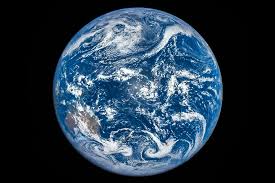
Psychological Tools for the Path
Just as the astronauts needed the right technological and physical instruments to withstand the conditions of space and attain their contemplation, so, too, those who contemplate themselves must have the right tools. Just as the astronauts required personal psychological training to withstand the pressures and information and support from our earth, so, too, those who look inwardly need sufficient capacity and psychological tools, including support from others, in order to meet the demands of the task.
What Inner Strength is Needed and what Tools are Necessary for Contemplation?
- Cognitive tools are necessary to note of the complexity and contradictions within oneself,and imagination and intuition, are essential in discerning its irrational and unconscious aspects of oneself.
- An appropriate emotional attitude , which is both inclusive and capable of understanding, is necessary for contemplation –as well as an emotional acceptance of the various aspects of the self.
- The ability to create a relationship and be helped by another is a necessity, in order to discern oneself more clearly in terms of the other, first the Other that is within, and then the Other outside . People with no connection to others, might become disturbed on such a journey of contemplation.
In addition, conditions of psychological resilience, strength, and a relatively good contact with ourselves are needed . Otherwise we might, perish the thought, become astronauts, without oxygen , without a mother ship,beyond the atmosphere, splitting into fragments.
What Attitude must be Developed for Correct Observation?
Although the astronauts who observed the earth from the distance of space did so with some trepidation, they also felt curiosity, amazement, and love for what they were doing. One departs on such a journey for the purpose of investigating, but one also departs with the joy of discovery, the happiness of creativity, love, and the acceptance of what is discovered. This, too, is the aspiration of those who set out on a journey of inner contemplation.
Frequently self-observation begins because one has no choice, in the wake of distress, because of symptoms, and for an immediate need. A person is forced to contemplate himself and his life and understand that the distress is what is pushing him there . anxiety attacks, the development of a symptom, depression, some psychological pain, loss of meaning, or a life crisis. And sometimes we may be motivated by curiosity that simply cannot be explained….
It would be beneficial if, during the process, one understood that there is something here that was created by causes that one does not yet know: that there is a logic here, a direction, a purpose. Something is happening here with a shift of perspective, which one does not yet understand– like entering outer space, where the entire universe is unknown. A person only can know the place of which he or she is aware. Here trust and faith in the process of awareness through contemplation are important, as are the desire and curiosity to discover and ask questions.
A Courageous Approach, which Accepts out of Emotional Understanding
One needs courage to discover, and hope that something will happen, throughout this observation; lack of trust and defensiveness can give rise to cynicism and doubts, distancing one from oneself. We have to free ourselves from all judgmental-ism, from prejudices, unnecessary criticism, and rigid moral-ism, all of which belong to the narrow world in which we are imprisoned, in which we were brought up, in which we were formed. Above all, we need emotional understanding of the things we discover – love, sympathy, and compassion even for the most difficult of discoveries.
And here changes begins…
Change: Insight and Transformation
Change begins with the understanding that we, like the universe, are a single natural system, which is full of contradictions, in which there are conscious parts and the hidden parts that are not yet conscious, that it contains light and shadow in it, good and evil, irrational and irrational, masculine and feminine, old and young, eternal and temporary :that all these contrasts and contradictions are possible, and that all the continents are joined together in one world.
All These Things are You!
This understanding and the process it creates, lead to change. Why?
The astronauts experienced our earth from a distance, recognizing it is unique and secular , a place that must be preserved; they realized all of this in the totality offered by the experience of space, and the universe. Just as the astronauts understood that the earth had to be protected, that the conflicts had to be resolved immediately, that wars and concern for the unimportant had to cease,so through shared observation, understanding of psychological contrasts, from self-acceptance and connection with the whole, the soul activates its natural urge to find a solution of their integration. From this integration come change and the experience of uniqueness.
Our psychological distress derives from the conflicts that we live, from our lack of awareness of parts of ourselves, from our fragmentation, or from clinging to a picture of perfection, of an ideal that we have constructed for ourselves as the one and only possibility out of the whole large structure.
While contemplating your complex entirety, with inner attentiveness and distinguishing the whole conformation which surrounds you, something changes within you. Something also changes in your relation to others, and you become part of them. You begin to take in the fact that we belong to the whole human fabric, that every one of us has a personal soul, with his or her own suffering, distress, smallness and greatness. You also develop awareness of what which you share with others, a clear recognition and acceptance of others, as they are, as well as understanding that you are not alone, and that you need others.
Later you begin to understand how small you are within the great unknown totality that surrounds us all. That totality of which we are a part but are unable to describe, the totality to which we very much want to give a name and shape.
You are part of something greater than yourself
This is an incomprehensible totality, which people will continue to investigate,an entirely in which they will continue to be interested,although it cannot be clearly defined. This universe, this space, all the worlds, the infinity and our partial presence in it – everything that for people is painfully incomprehensible.
Everything seen in this unknown in this mysterious totality can be interesting and complex how it is defined,giving divine epithets the spark of divinity that lives within people,how they believes in or worship that divinity. But human individual must recognize that they are products of human belief, that this is what people can do with the tools they have. Everything people have done for generations to understand the unknown, the divinity, all the faiths they have developed for themselves to believe in or worship that entirety are partial and relative – as beautiful as they may be – they are not absolute.
The fact that all the explanations of the divinity derive from human belief and emotions and not from knowledge is very important. If people become cognizant of this, they will be more modest and understand that the other people around them might have created other definitions and different beliefs about that unknowable totality. If people know how partial their understanding is, they will recognize that what they have woven is not better or more correct than what others have woven.
We investigate or attempt to investigate the laws of this totality, which is above us. We try to understand its laws and movement, but as humans we must live with ignorance, and this is what makes us human.
However, in the face of the mysteriousness of that totality, within that incomprehensible divinity, it is important for us to understand ourselves better within all this. Always, as much as possible. We must continue to observe ourselves, to put together all the pieces of the puzzle, to obtain a more accurate picture, and to concede that it is a picture that constantly changes.
With every contemplation, with every such journey into space, we will sharpen our senses and develop our consciousness. We will get a better picture of our selves, and, most importantly, we will also gain a better picture of our fellows.
Throughout this process,we should honor the different paths in which others believe and think about the entirely , and not appropriate truth and belief for ourselves.
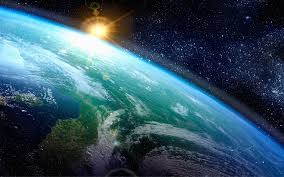
Translated by Jeff Green.
Dedicated to my son, Yoav.
